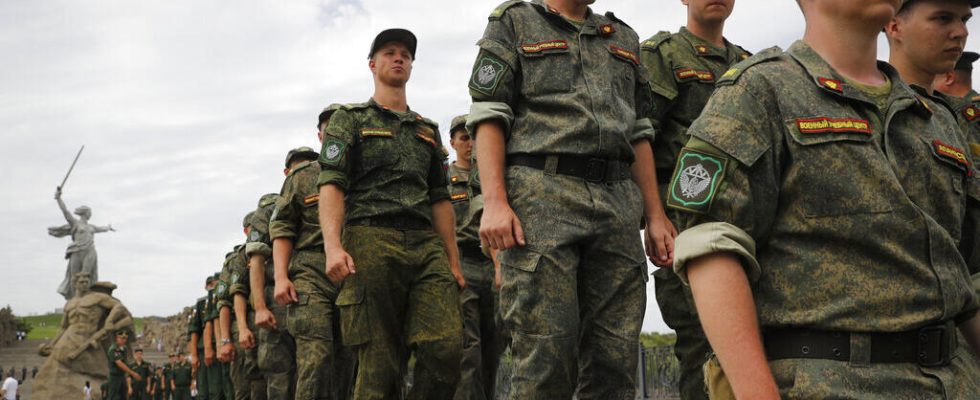It is a narrow majority, 48%, against 39% opposed, but a majority all the same. Unsurprisingly in Russia, it is above all women and those under 45 who wish to negotiate.
1 min
From our correspondent in Moscow,
Those under 45, because they are mainly the ones who carry weapons. As for women, we are beginning to feel a stirring in the country: wives, mothers and sisters of those mobilized who are attempting meetings to demand the return, at least temporarily, of their men from the front, attempts monitored like milk on the fire by security services.
An additional and particularly significant indicator in a country where criticism is repressed more and more severely: the number of those who would not support Vladimir Putin if he launched negotiations only represents 18%. That is to say the stable weight, assessed by all the experts for more than 18 months, of the population ideologically in favor of sending soldiers to Ukraine.
Under what conditions should these discussions be launched? There, the vagueness of the responses reflects that of the government’s war objectives: no majority suggestion. We find pell-mell a simple stopping of the fighting; the capitulation of Ukraine or the annexation of new territories.
Two major trends remain: a large majority of Russians say they refuse to give up the annexed territories. ; Finally, the figure is eroding slightly, but there are still 65% in Russia today who say they believe that their country is moving in the right direction.
Security Council Secretary Nikolai Patrushev told him this Thursday, November 16, that regional heads and national officials should prepare for “the transition to a mobilization economy.” He is renowned for being one of Vladimir Putin’s most listened to hawks.
